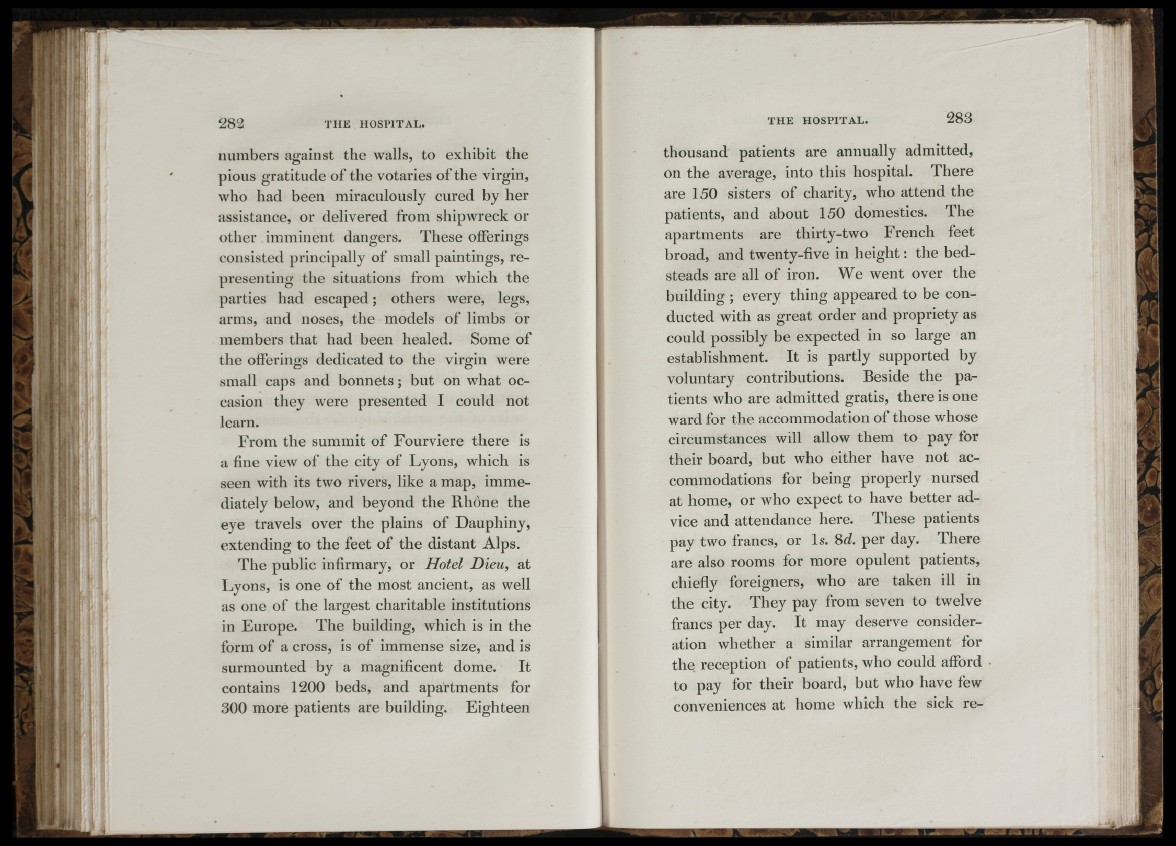
M . 1
tri i
î M
i t
7 5* 'l-l
i . ..
T. :: "- ■ ;i
:
hl
'is' Np
numbers against the walls, to exhibit the
pious gratitude of the votaries of the virgin,
who had been miraculously cured by her
assistance, or delivered from shipwreck or
other imminent dangers. These offerings
consisted principally of small paintings, representing
the situations from which the
parties had escaped ; others were, legs,
arms, and noses, the models of limbs or
members that had been healed. Some of
the offerings dedicated to the virgin were
small caps and bonnets ; but on what occasion
they were presented I could not
learn.
From the summit of Fourviere there is
a fine view of the city of Lyons, which is
seen with its two rivers, like a map, immediately
below, and beyond the Rhone the
eye travels over the plains of Dauphiny,
extending to the feet of the distant Alps.
The public infirmary, or Hotel Dieu, at
Lyons, is one of the most ancient, as well
as one of the largest charitable institutions
in Furope. The building, which is in the
form of a cross, is of immense size, and is
surmounted by a magnificent dome. It
contains 1200 beds, and apartments for
300 more patients are building. Fighteen
T H E H O S P I T A L .
thousand patients are annually admitted,
on the average, into this hospital. There
are 150 sisters of charity, who attend the
patients, and about 150 domestics. The
apartments are thirty-two French feet
broad, and twenty-five in h e ig h t: the bedsteads
are all of iron. We went over the
building ; every thing appeared to be conducted
with as great order and propriety as
could possibly be expected in so large an
establishment. I t is partly supported by
voluntary contributions. Beside the patients
who are admitted gratis, there is one
ward for the accommodation of those whose
circumstances will allow them to pay for
their board, but who either have not accommodations
for being properly nursed
at home, or who expect to have better advice
and attendance here. These patients
pay two francs, or Is. Sd. per day. There
are also rooms for more opulent patients,
chiefly foreigners, who are taken ill in
the city. They pay from seven to twelve
francs per day. It may deserve consideration
whether a similar arrangement for
the reception of patients, who could afford
to pay for their board, but who have few
conveniences at home which the sick re-
4 ;i
!
'■:r:
I .Fi
. *7 t.
! 'I
i',.:
j
■rw;
j ' #
", < i ' i . A'-'i il
«à M ■